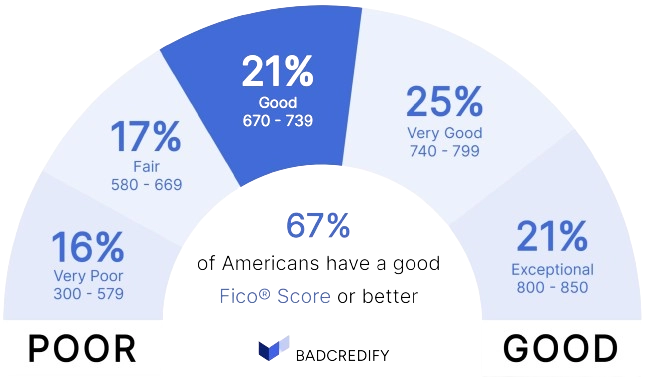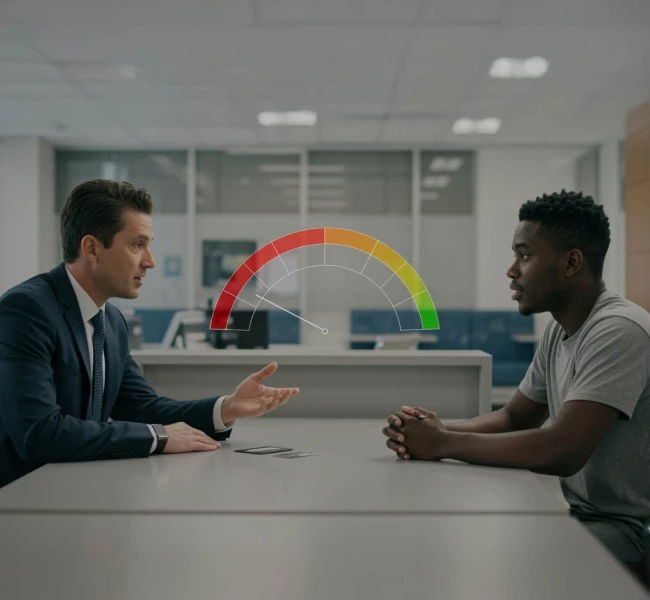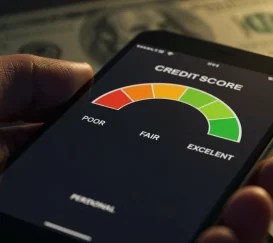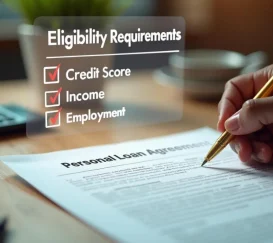Keeping money in cash is becoming less and less popular. Checking and savings accounts now serve as a common solution for storing funds due to their convenience and fast access to money.
While having bad credit makes your financial life more challenging, you can still open a bank account with bad credit. However, your bad banking history is the factor that affects the financial institution’s decision. Keep reading to get an answer to this and other questions related to bank accounts.
- Opening a bank account is possible even with a bad credit score;
- Financial institutions look at your banking history instead of a credit score;
- Various fees may be charged for holding bank accounts;
- A bad credit score is considered a FICO rating below 579.
Where Can You Open a Bank Account with Bad Credit?
As the banking industry evolves, there are several ways to open a checking account. This way, everybody can find something that fits their needs. Before making a decision, learn more about your options and their features.
Traditional Banks
Individuals choose to open a checking account with traditional banks due to their safety and reputation. For a large number of people, especially older ones, coming to a physical location and working with people face-to-face is preferable and more secure.
Unfortunately, traditional banks tend to have stricter requirements than other financial institutions and incur higher additional charges. They are also less technologically advanced, which may make managing your funds inconvenient.
Online Banks
If convenience is your priority, online banks may be an excellent solution for you. They allow you to manage your money via user-friendly platforms and often provide useful tools for credit monitoring, investment, and other personal finance matters. Opening a checking account at a reputable online bank is absolutely safe, as these institutions are FDIC members. You can be sure that your cash will be insured.
If any questions occur, you can easily contact their representatives by phone, email, or via live chat. However, this option may not suit people who prefer personal interaction.
Credit Unions
Credit unions are nonprofit institutions that often offer multiple perks and set lower maintenance fees. However, you need to be a member of the CU to use its services. This may involve working for a particular organization or living in a specific county. Additionally, credit unions typically offer less diversity in their options.
What Information Do You Need to Open a Bank Account?
Banks and credit unions don’t check your credit score to open an account. Instead, they look at your standing and ask you for the following information:
In addition to the mentioned data, you may be asked to make an initial deposit.
What to Consider Before Opening Bad Credit Bank Accounts?
Before opening a checking account, review the terms carefully and look at additional fees your financial institution may charge.
Monthly Maintenance Fees
A monthly maintenance fee is charged for having an account with the bank. As a rule, it does not exceed $25. In some cases, you can avoid paying monthly fees if your savings account and checking account are open with the same bank or if you set up direct deposit.
ATM Fees
You typically need to pay extra fees when you withdraw funds from your bank account. However, banks usually don’t charge you if you choose their ATM machines instead of out-of-network ones.
Overdraft Fees
Overdrafting your bank account leads to additional charges. To avoid paying them, you can set up overdraft protection for an extra fee. However, such an option is not always available in all banks.
Transaction Fees
These fees are used to cover the cost of processing and settling the transaction. For bank and savings accounts, they typically accrue when an account holder withdraws money over a set limit. Such fees can range from $3 to $25 per transaction.
Initial Deposit
In addition to the fees, your financial institution may have a minimum opening deposit and a minimum balance requirement. While these are typically not significant amounts of up to $100, you should still take them into consideration.
What Is a Bad Credit Score?
Your credit score is a number on your credit report that demonstrates your financial behavior and overall stability. Lenders typically use it to decide on whether to approve you for a loan or a credit card since it shows the likelihood of getting their money back from you.
While the FICO Score ranges from 300 to 850, people with credit below 579 are considered bad credit borrowers.

Your credit scores are conducted by the three major credit bureaus: Equifax, Experian, or TransUnion. Lenders or credit card issuers report to them all the information about your debts, on-time or late payments, and credit checks. Then, this data is used to calculate your FICO rating. Here are factors credit reporting agencies use to determine your score:
- New credit (10%).
- Payment history (35%);
- Total amount owed (30%);
- Length of credit history (15%);
- Mix of credit types (10%);
Why Is It Important to Establish a Credit Score?
While opening a bank account is possible without a good credit score, it is still crucial for many other aspects of your life. Whether you apply for a loan or a credit card, look for a job, or want to rent an apartment, your credit report plays an important role. Bad credit borrowers tend to face higher loan APRs and less favorable repayment terms or even be denied a loan. Additionally, you may be asked for a higher rent deposit or get a less favorable insurance rate.
To improve your credit score, apply for credit-builder loans or secured credit cards, become an authorized user on someone else’s credit card, use no more than 30% of your available credit, and pay your loans and bills on time.
The Bottom Line
Unlike many other financial operations, opening a bank account is possible even with a bad credit history. Whether you work with a bank or credit union, you will not face a hard credit check. The institutions focus on your banking history instead of your credit score.
Before setting up checking accounts, make sure you can afford to pay a monthly fee for using the banking services. There may also be other extra charges that you need to be aware of.


